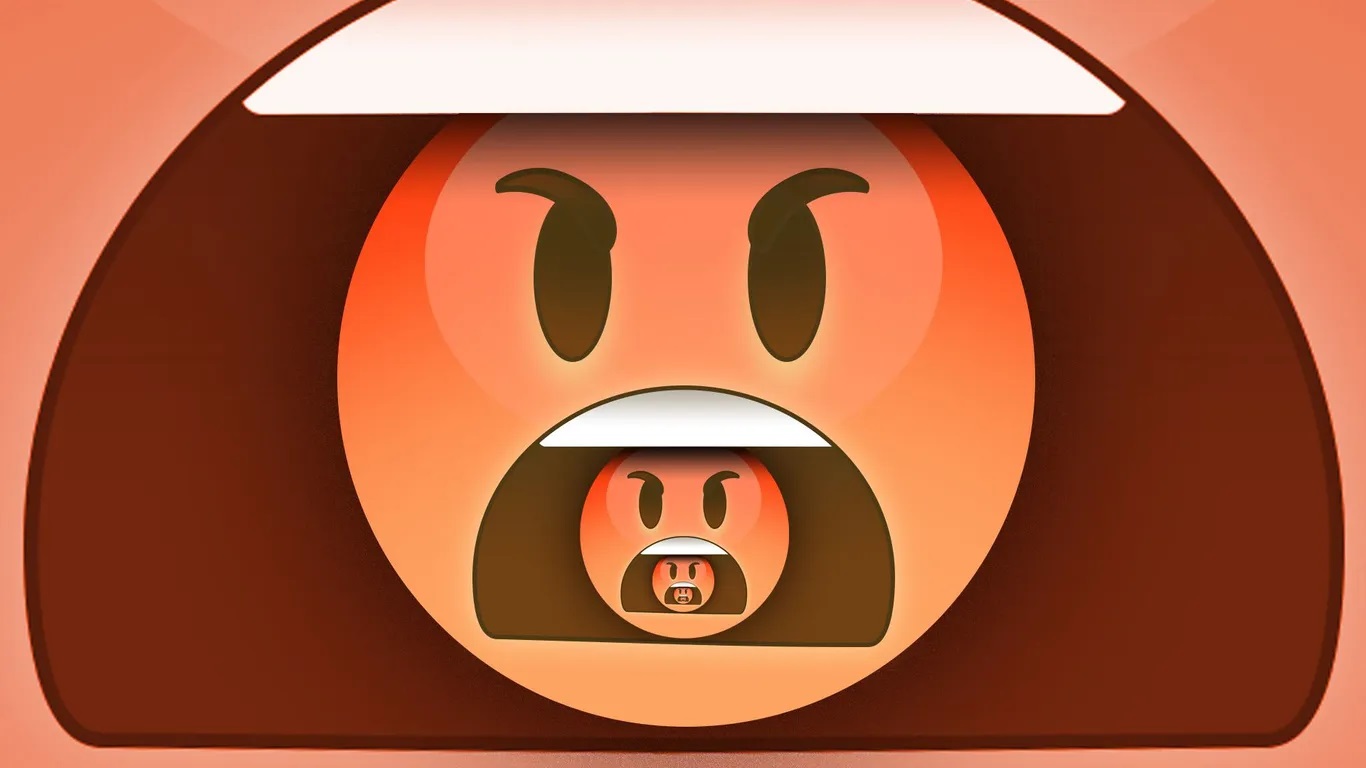
Sometime in 2019, the idea of completely, and permanently removing every trace of my social media presence started surfacing in my head. That was the year when my Facebook account was hacked.
The intruders were clever. They took over my account in a matter of seconds, and made it impossible for me to regain control, as they changed every bit of personal contact detail, to reflect a new set over which they had control.
It took me about three weeks to regain access to my account, and it wasn’t easy. Facebook has offered no help, and by sheer luck I was able to find a service URL, on a random Reddit post, that provided a contact form into which I was able to upload two forms of ID, and enough information to get a customer service employee to get back to me and help me, on a one-to-one basis. Once my account was once again under my control, I made the very easy decision to delete it entirely, yet not before downloading an entire backup, and scour every bit of information to find out how much of my private life might be for sale on the dark web.
Fortunately, it wasn’t much, but the amount of personal information, such as phone numbers, screenshots, driving directions, among a multitude of categories, was frightening.
In the three months that followed, I watched my credit reports like a hawk, expecting all sorts of nefariousness being committed on my behalf, until I felt relatively safe at last.
Much like other people who have experienced similar predicaments, I came to three conclusions:
- There is nothing “social” about social media: The appeal of social media is the opposite of social interaction. It’s all about creating a platform for a few, to be consumed by many. Microblogging platforms like TikTok, Instagram, and Twitter, among the most popular, focus almost exclusively on pairing video content, with comment sections, largely populated by a ferocious, and well-funded community of trolls, social engineers, and influencers, which brings me to the second conclusion at which I had arrived:
- Social Media is all about strong emotions: A staggering percentage of all posts that appear on any average Instagram feed, is designed to provoke extremely strong emotions. Search “cars”, and you’ll find endless content featuring accidents, road-rage episodes, hazardous driving, violent encounters with law enforcement, and the list goes on, for just the one category. One could postulate that this is merely what “the people” want. Strong emotions are exciting, and promote the production of brain chemicals capable of inducing temporary satisfaction to masses of people doing everything they can to escape reality. Yet, is that all? The answer to this question brings me to my final thought on the matter:
- Social Media is an instrument of thought control: A continuous stream of emotionally stimulating content, consumed for any extended period of time, with no breaks, comes with several side-effects, that the self-indulgent will conveniently ignore. What follows repetition of a certain message, a keyword, a buzzword for hours, days, weeks on end leads to mental re-conditioning. “Cancel Culture”, “Karen”, “[blank] Lives Matter”, “Woke!”, these are words with very defined meanings to very defined groups of people. Just hearing these phrases is enough to galvanize hundreds of people and get all of them to engage and respond in the exact same manner.
The weaponization of social media isn’t a new concept. Thought manipulation through disinformation dates back centuries, but it wasn’t until the last twenty years that the entire world has been able to access a single information hub, one that is both addictive, and frighteningly easy to manipulate and control, from a mobile device.
Most users live under the assumption that the web is free, and vast, but it is neither of those things. Its population, however, is enormous, and it feeds off the same small, carefully curated content pool. This is why we have buzz words, and content goes “viral”. It’s easy to go viral when the network is already designed to favor only one type of content: the one that makes you angry, and scared.
Outrage and paranoia are heavy hitters in the marketing world, for two very good reasons: they produce staggering profits, and win elections.
At this point the word “influencer” may come to mind, and you may be forgiven for jumping to that assumption, but the reality is that influencers are no less gullible that the consumers they invest so much of their time galvanizing into fits of carefully planned psychotic rage, hysteric and forced laughter, and further permutations of aggravating, and often self-dehumanizing states of mind.
The death knell of social media is its underlying foundation as an anti-establishment tool, which, to anybody who has spent significant lengths of time on Reddit, knows to be true.
In the late 90s and early 2000s, one had to lurk the darkest corners of the Internet to find anti-government sentiments. Now that content is rampant on social media. It makes headlines. Political campaigns are built on it. It has become strategic in increasing profits, and instrumental in influencing public opinion during crucial elections. Furthermore, the advent of microblogging has allowed for this to become the new normal.
The question is: are people really this gullible? Most people would respond YES without a second thought, but the real answer is far more complex.

In the mid 2010’s a multibillion dollar trolling industry was born.
In her book “I Am A Troll: Inside The Secret Life Of BJP’s Digital Army“, Swati Chaturvedi offers a frightening prediction of what has already occurred, globally, and how this phenomenon has already impacted our lives and ability to reason and process rational thought.
As reported by news writer Viv Sanghvi on the Indian Internet news reel Business Standard, the Bharatiya Janata Party (or the larger Sangh Parivar) has hired volunteers and paid workers to enact systematic disinformation campaigns to spread hate tweets and conspiracy theories with the objective of slandering journalists, and anyone opposing political views. The hate-filled tweets were packed with volatile and false information. In many cases, these campaigns entailed active personal threats to businesses and individuals, from boycott to personal harm.
The “BJP’s Digital Army” was proof of concept. The system worked, and spurred a flurry of similar activities across the world, which has eventually led to the creation of a profitable and thriving industry, employing millions of individuals in at least a dozen countries, including Albania, Brazil, China, Finland, India, Malaysia, Nicaragua, Macedonia, Philippines, Russia, Turkey, and the United States.
The list of requirements to join these agents of chaos is surprisingly short:
- A mastery of the English language, as well as fluency in the local language spoken in the country where these disinformation attacks are performed.
- Basic tech skills, including familiarity with the most popular social media platforms.
- A sufficiently severe poverty level, as well as a lack of moral compass
- Free time.
Quite a few of these troll farms or “troll factories” have been exposed, however, these exposés are often drown out into the white noise of social media platforms that favor and promote precisely the activities that are being reported.

A Lost Cause
One may think “Well… why don’t we all just fight the trolls and report them?”. That’s a commendable attitude and a great objective in principle. Unfortunately, It’s also pointless.
Troll factories did not come up from nothing. Nobody just woke up one morning thinking that would be a great idea and acted on it.
Social media came with trolls built-in, from the very start. It’s human nature, at its worst.
For decades, YouTube has been one of the worst offenders in abetting toxic online behavior, with barely functioning internal moderation, and, at best, rudimentary tools to block and ignore abusive users cluttering comment sections. However, it wasn’t weaponized until a proper industrial complex was established in 2016, making a certain presidential candidate, very fortunate indeed, and the winner of said election.
The popularity of short-form video apps and microblogging has tipped the effectiveness of troll farms right into the net, fueled by an entire decade of socio-economic disappointment and frustration, leading to a general outlook of grim exhaustion, desperation, and paranoia.
The coincidental occurrence of a global pandemic was just the cherry on top for those seeking to herd the masses of “useful idiots”, into a cattle drive, ready to stampede in any direction given by the ones with the deepest pockets, and the most pressing agendas.
Suddenly, any fringe topic, no matter how wild, or nonsensical, has become a powerful tool towards forcing the masses to behave. Flat-Earthers, Moon-landing deniers, Holocausts deniers, and any and all sorts of “arm-chair” radical extremists are now unwittingly being recruited, and put to work for the “factory”.
- Do you have this feeling that space aliens have abducted and replaced your local mayor? You don’t know the half of it! Watch this video and prepare to get your paranoia validated!
- Were you told by a friend of a friend that all birds are extinct and the government has replaced them all with robots to spy your every move? (Never mind that your own smartphone, which is now pointed at your face has two cameras that you are not allowed to switch off): Watch this totally genuine 30 seconds video of a killer robot rampaging across a shopping mall!
- Have you ever had a feeling that the world is a terrible place and everything and everyone is out to kill you? Watch this video about the government coming for your guns!
The evidence of the futility of fighting online trolls is widely documented and crystal clear to those who have the ability to pause for a minute and critically think about the way social media functions, as a system.
The fact that more resources have been put into means to promote and control categories of content online, than it has ever been invested into security and self-moderation tools. is a dead give-away of the current list of priorities by which social media companies hold dearest.
Anybody who has ever attempted to report a troll, anywhere on social media, knows this reality too well. On Instagram, troves of troll accounts are reported daily, with very good cause. They promote hate speech, intimidate, and push targeted propagandist messages, and yet, they exist, perpetually, with no repercussions. Any attempt to report them is met with a dull, automated notification, informing the user that upon “extensive” investigation, the reported account has not been found in breach of any guidelines.
Apparently, the definition of “extensive” must have been recently revised within the Oxford Dictionary to mean “within 60 seconds”.

Abandon Ship
There appears to be a growing trend of Internet users who have given due thought to the possibility of removing themselves from the toxicity of social media entirely, as the most popular microblogging platforms continue to rake-in record profits, and see their stock value raise, thanks to the careful, strategic channeling of the worst aspects of human behavior.
For the past few years, I have been constantly, no further than two minutes from taking action, and ridding myself of the last few social media accounts that feature the private me to the world, which brought me to explore and really determine the usefulness of these services.
As it stands today, microblogging has no value to the individual.
In fact, the individual user is the product. The individual is consumed by the provider of the service. The individual is the one providing a free, powerful advertising platform for any service that is able to afford a solid marketing campaign, or the often outrageous fees, paid in cryptocurrency to troll farms.
The reality is that unless you are a business using social media exclusively as a promotion tool, you are the product. You are being used, unwittingly, and you are doing it for free.
The individual is also alone. Isolated. On purpose. Take a look at your social media feed. Isolation is celebrated. Anti-social behavior is now a trait. The more rude, aloof, jaded and conceited one is, the more it becomes someone to follow by example. A hero.

Is this the kind of reality you want to train your brain to live into?
Be scared, Stay in your home. Don’t trust anyone. The government is stealing from you. The cops are out to get you!. Your neighbor has cameras trained on your house. Your own family hates you because you voted for [blank].
Look out! A Karen’s behind you!
This is easily, and without even looking it up, 90% of all social media feeds, and comment sections across all the most popular social media apps in the world.
It’s a doomsday fetish, psychosocial Heroin that corrodes everything that makes us functional, social human beings, and replaces it with a docile, sedated drone, ready to push agendas and fight for anything that gives us a thrill, and lets us forget about our reality, which is often subsidized by the very lies and conspiracies we fight, argue for and troll others about, to protect.

Final Thoughts
Make no mistake: this post is heavily biased against social media. It’s not hard to see.
It’s an opinion I have formed over the course of 30 years of Internet activity, beginning with NNTP’s and BBS’s, in the early 90s. I have witnessed and experienced an Internet with no rules, no regulation, no limits, and no filters for at least a decade and half, until governments realized that the Internet existed.
I watched the sloppy, slow, awkward and clunky process of creating rules, as authorities struggled to understand the psychological profile of the average user, while private corporations leap-frogged them, and ran circles around them.
The FBI itself, the same FBI that busted Al Capone for tax fraud, didn’t have a cyber-security division until 2002, a full thirteen years after Robert Morris deployed the first ever denial of service attack in 1989 targeting the Massachusetts Institute Of Technology.
The way I see it, there is no fixing a problem that is being willfully ignored, while fury and anger is carefully and skillfully redirected towards the nonsensical fictional outrage at what is being fed to us as “artificial intelligence”, and other fake boogie men, distracting us into submission.
Truth is now an opinion. Bias and prejudice has turned into law. Fear is a both a shield and a warm, comfortable blanket we have not washed in decades, and we can no longer smell.
All of this, courtesy of your “open-carry” social media comment feed.
It’s going to happen sooner or later. I’ll be getting off this exhausting ride … and I won’t be back.

